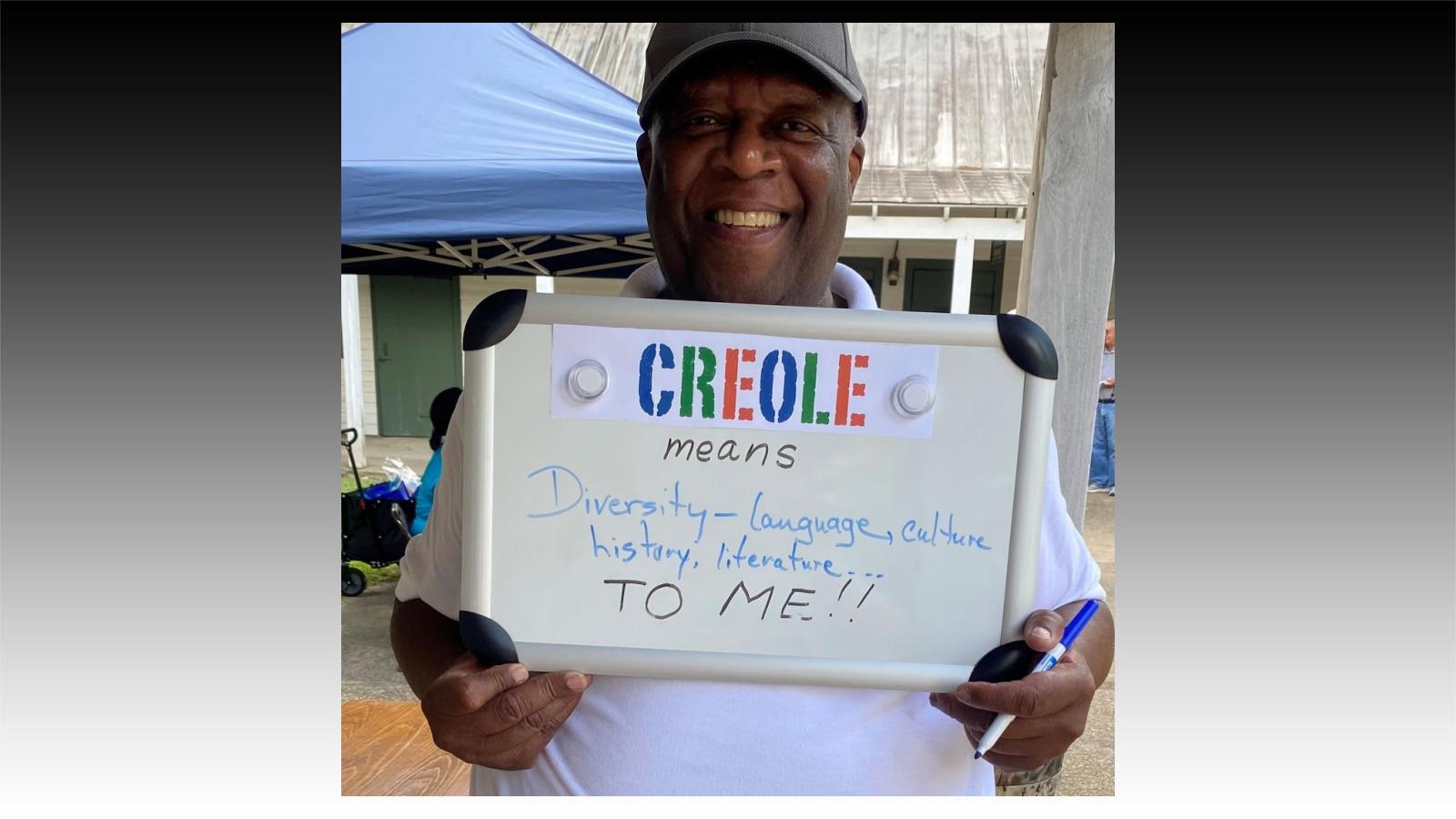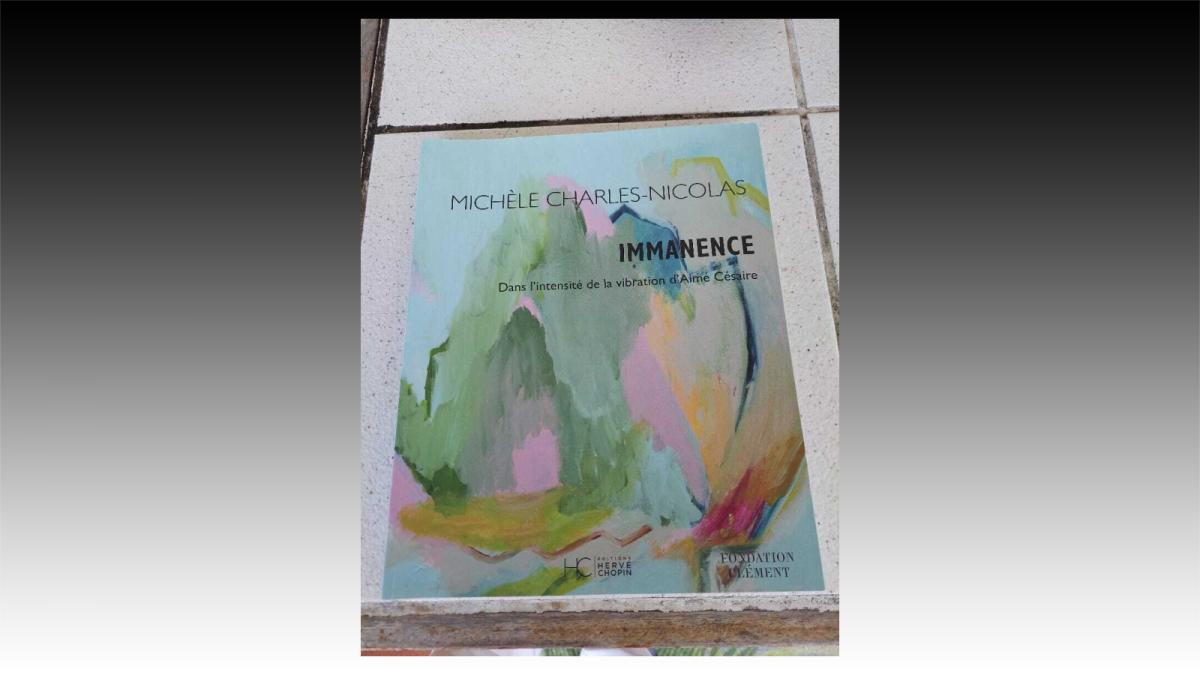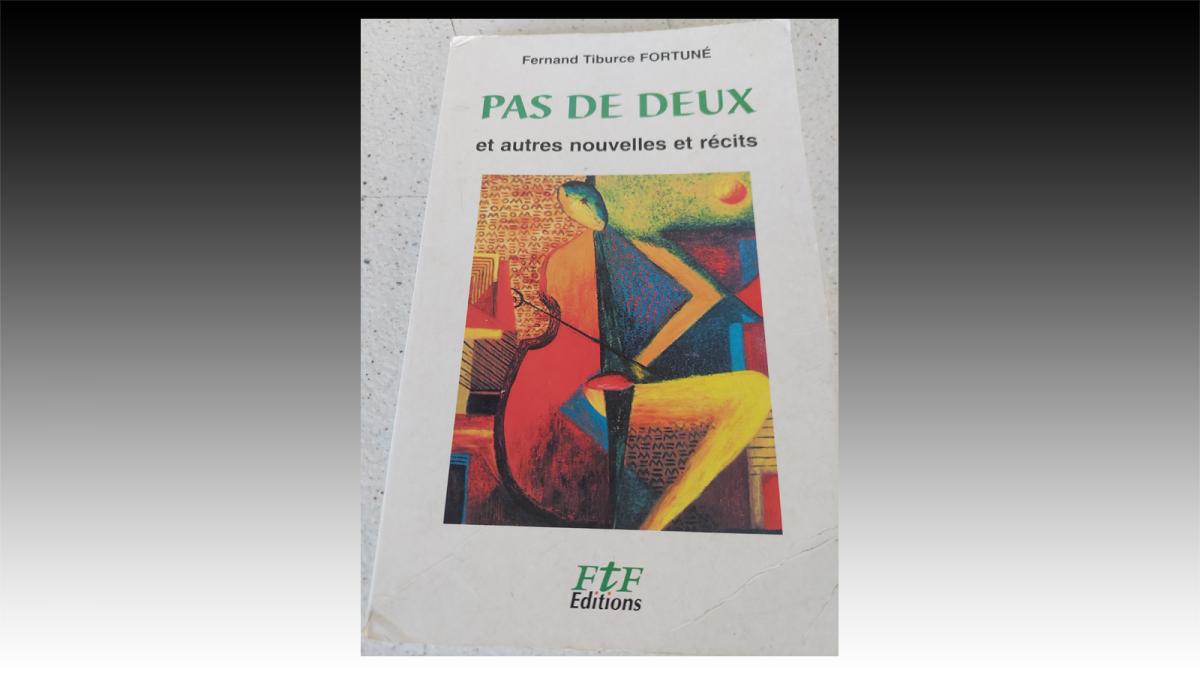A contribution to the advancement of the Creole language 1984
FONDAS KREYOL est un site-web (journal en ligne) qui ne vit pas de la publicité capitaliste comme la totalité de ses confrères antillais ni de subventions publiques, mais uniquement de l'aide émanant de ses rédacteurs (trices) et surtout amis (es). Celles et ceux qui souhaiteraient nous aider peuvent prendre contact avec nous à l'adresse-mail ci-après : montraykreyol@gmail.com
La seule "ligne" qui est la nôtre est celle de la libre expression de nos collaborateurs et collaboratrices, sachant que nous publions toutes les opinions (de la droite assimilationniste à l'extrême-gauche "indépendantiste") et cela depuis le prédécesseur de FONDAS KREYOL à savoir MONTRAY KREYOL lequel a duré 15 ans et redémarrera un jour ou l'autre. FONDAS KREYOL, lui, a 4 ans d'existence.
Tout cela pour dire à nos lecteurs et lectrices que les articles publiés sur notre site n'engagent que leurs rédacteurs et rédactrices, pas le site-web en tant que tel...

Our relation to the language :
According to Stephen Ullman[1], «Any linguistic system conveys on the one hand an analysis of the outer world of its own and that differs from that of other languages, or from the evolutions of the language itself. It is the memory of successive experiences of past generations, that why it provides the future generation with a way to see and interprete the universe »
That is why according to us, the relation to our language is a relation to the earth, to poetry, so to creation. It is therefore a relation to the mother, an essential umbilical cord that makes us unique and preserves us from solitude, at the same time
Thus, the language is a patrimony, that is to say an open space were the highlights of our lives pile up endlessly. In this context, the act of speaking of one People means love and loyalty.
The language is ourselves, but also the contact, the presence, the very existence of the Other. Indeed, any language is to some extent, this multifaceted movement towards a fraternity to be shared, a deeply humaine community.
How can one not like one’s language
Why attempt to erect « a wall of shame » between one’s language and oneself ?
How can one not feel good with one’s language, so thereby feel good in one’s skin ?
If one cannot answer those questions, one lives with one’s double, in a troubled relation, in an anbiguous intimacy.
But the language is life in its diversity and its light. It is not one, indeed, in spite of its entirety. It situates us every minute and adapts itself according to events, things, beings and feelings. The language surprises us at the crossroads of its evolution, for it carries us as much as we give birth to it, in an endless dialectic of give an receive, of felt and expressed. It is either crude and cultured, common and poetic. It is rebellious or docile. One gets so close to it as if to woo it. But sometimes it resists and turns into a tumultuous river the ford of which one must find. It is when one discovers its delight with the right word, the accurate expression that allow, with economy, to find the path to communicate with others.
For the language is magical, the language is mysterious. It is inside us, as it is alien to us, hence our need to tame it.
Our relationship to Creole fills us with a creative joy whatever the level, be it popular or scholarly language. Not a single day goes without the language creating, causing sometimes an aesthetical choc, reaching an intellectual climax and a complete happiness, if only for one second.
We must introduce Creole in the educational system, because it is ours first, it sticks to our skin, it exudes from us, it has the taste of our sweat. It is absolutely not a subversive act against the French language. It is simply a belated act of gratefulness.
One can pretend to ignore it while making a daily use of it. Whether it is an international tool of exchange or not, does not matter much. What dos matter is the hand-to-hand fight we must have with it so,that it reveals all of its secrets. Today, the scholars and the researchers are insterested in the two languages, the older and the newer : the Sanskrit and the Creole(s).
No false quarrels, no false debates, no hypocrisy. Our language is there around us, among us. To deny Creole, and to deny this fact turn us into ghots, men and women with no consistance, no conscience, no freedom. To be forced to hide our language in the recesses of our shame and in the swampy depths of our complexes, comes to deprive us from our tongue. It is to be locked in a cultural Gulag, indeed.
Instead, we assert, as Roger Garaudy[2] wrote « that any individual has the right to belong to one place and one culture, with no guilt, without feeling the weight of past proscriptions. And at the same time, each person must have within reach the means to know and to appreciate the culture of others.
Therefore, our Creole in more than Creole, it is the raft that, if skilfully handled, can save us from a wreck. How can we think the world anew, What will be our contribution to the world if we mask what make us unique.
The relationship to the language is both a landmark in childhood and also a marker of the temper of one people which can either disown itself in alterity, or project its future encompassing certitudes and the promisse to face challenges to come.
Therefore the he progressive and scholarly introduction of the study of the Creole language in school is the opportunity to reinsert the French Caribbean Man in his innerself, from which one wanted to alienate him. Today, he is orphan of his past and exiled in a consumerism. By refusing him his language – thereby his Culture – one would like to make a widow out of him, but also the forgotten of the World.
As a conclusion, our voice must be heard in the « New dialogue of civilization [3]» that must start in a near future. If we wished to be present the day of the advent of this new conviviality, if we get aware that « Culture is an on going democracy[4] », let’s start fist loving our Creole with passion and let’s continue then to enhance it.
Fernand Tiburce FORTUNÉ
Martinique- Caraïbe – 01/11/1984
(my thanks to J. Polius for his contibution)
[1] Ullman, cité par G. MOUNIN in : « Les problèmes théoriques de la traduction » (1963)
[2] in « Dialogue des Civilisations »
[3] Roger Garaudy : « Dialogue des Civilisations »
[4] « Cultural Democracy and right to the difference » (in review Documentation française)
- Se connecter ou s'inscrire pour publier un commentaire
- 123 vues
Connexion utilisateur
Dans la même rubrique
Fernad Fortuné
17/02/2024 - 23:53
Fernad Fortuné
17/02/2024 - 23:53
08/02/2024 - 11:28
Commentaires récents
Derrière la diabolisation de Mélenchon, la haine du "bougnoule"
Tebboune et sa clique détestent la créolisation.
yug
04/03/2026 - 14:26
Enculé 1er a écrit récemment concernant la créolisation mélenchonesque que celle-ci est , je cite Lire la suite
Ces bouffons de rois, émirs et autres cheicks arabes
INFOS
@Lidé
04/03/2026 - 08:01
la chaine AL24news donnent des infos objectives.
Lire la suiteCes bouffons de rois, émirs et autres cheicks arabes
fermer les télés
@Lidé
04/03/2026 - 07:56
Depuis le début, ces médias blans racistes soutiennent ces criminels. Lire la suite
Yolanda Diaz Perez, député socialiste espagnole, cloue le bec à un facho
Très digne...
Frédéric C.
03/03/2026 - 15:02
...et très ferme, cette députée militante.... Lire la suite
Une "manawa" va présider le...Conseil de Sécurité de l'ONU !
Si ceci n’est pas un fake, à quel titre...
Frédéric C.
03/03/2026 - 14:23
...Mme Trump va-t-elle présider le CS de l’ONU? Lire la suite
Top 5 des articles
Aujourd'hui :
- REPRESSION IMPITOYABLE EN COREE DU NORD
- Arabie saoudite : danser au son des missiles
- Le PLP, « Pour le Peuple », a tenu sa dernière réunion stratégique aux côtés de ses colistiers et colistières
- Ces bouffons de rois, émirs et autres cheicks arabes
- Iran : funérailles des quelques déjà 596 morts sous les bombes américano-israéliennes
Depuis toujours :
- Tous les présidents et premiers ministres de la Caraïbe sont vaccinés
- L'intolérable appauvrissement intellectuel et culturel de la Guadeloupe et dans une moindre mesure de la Martinique !
- LETTRE OUVERTE AU 31ème PREFET FRANCAIS DE MARTINIQUE
- L'arrière-grand-père maternel de Joan Bardella était...algérien
- Les triplement vaccinés contre le covid ne bandent plus



